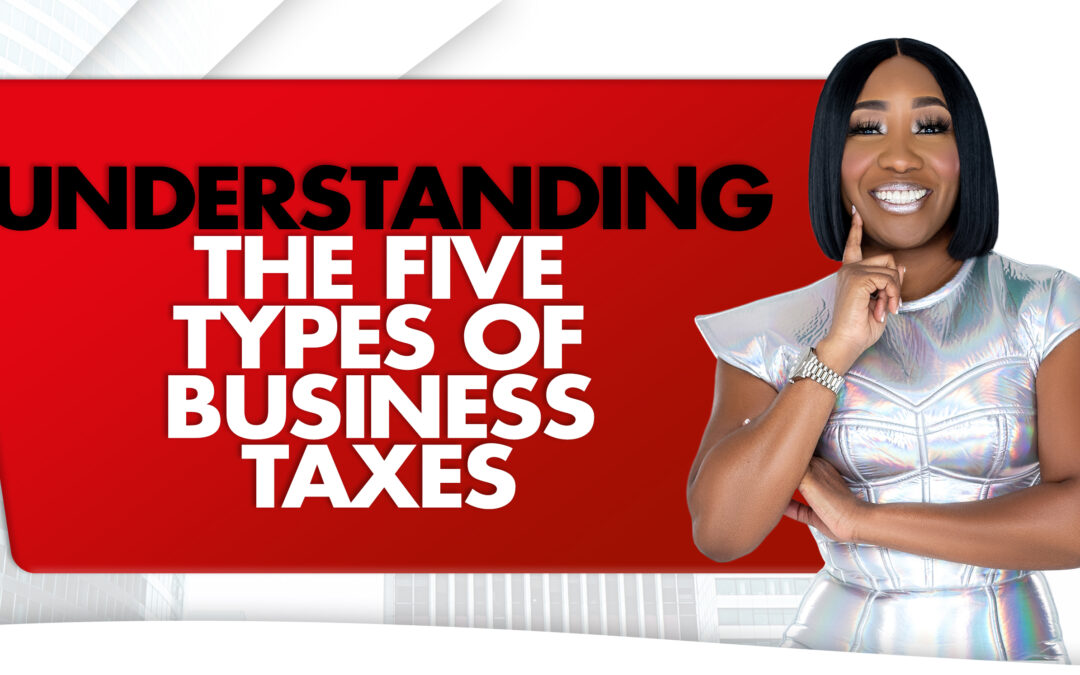When operating a business, there’s no shortage of things to do. There are certainly no shortages of sales, revenue, expenses, payroll, and regulations. At times, many of those things can also cause a great deal of stress. But nothing spooks a business owner more than the thought of business taxes. On top of that, there are several types of business taxes to keep up with!
As a business owner, you must pay a variety of taxes and you will need to understand how business structures affect your tax burden. I’ve put together this article to help you do just that.
…While you’re here, register for my exclusive FREE online training, ‘Teach Me The Tax Game’ to learn how to increase your income with a new career in the tax industry, and make $100K in just 90 days!
Five Types of Business Taxes
There are five basic types of business taxes mandated by the Internal Revenue Service (IRS). They vary by business and state.
1: Income Tax
Tax returns must be filed annually by all businesses. Everyone must use one form, regardless of how their business is structured (more on that in a minute).
2: Estimated Income Tax
A “pay-as-you-go” method is typically used by employees to withhold their income taxes throughout the year. For businesses, however, quarterly payments to the IRS are based on their expected income tax liability.
Tax estimates can be calculated with IRS Form 1040-ES. Generally, corporations use Form 1120-W.
Click here to visit the IRS page on Estimated Taxes.
3: Self-Employment Tax
Those who work for themselves must pay self-employment tax (a tax that contributes to Social Security and Medicare) if their income exceeds $400 or if their wages from a church or other organization exempt from these taxes exceed $108.28.
Click here to visit the IRS page on Self-Employment Taxes.
4: Employment Taxes
Employment taxes must be paid on behalf of employees if they are on your payroll. As the filer and payer, you are responsible for:
- Social Security and Medicare
- Federal income tax
- Federal unemployment tax
Click here to visit the IRS page on Employment Taxes.
5: Federal Excise Tax
Are you familiar with Forms 720, 2290, 730, and 11-C? Fortunately, most small business owners aren’t and with the help of a professional tax preparer, they don’t need to.
Nevertheless, if you operate a specific type of company, sell a specific type of product, or use particular equipment or facilities, you should make sure those forms are complete and in order.
Click here for a full list of IRS Excise Taxes.
Even More Business Taxes
Above is just a list of federal business taxes. It doesn’t cover state and local taxes that you may also need to file. To cross all your t’s and dot all your i’s, consult with a business tax professional. They’ll have the answers you need to questions you didn’t even know you had!
…And don’t forget! Register for my FREE online training, ‘Teach Me The Tax Game’, and learn how to make $100K in just 90 days as a tax preparer!

Recent Comments